How does the school library support reading and learning?

School libraries are not a new thing, they’ve been around for decades and play an important part in school life. School leaders have long been aware of how paramount they are in fostering a culture of reading and lifelong learning. They serve as a nurturing environment where students can delve into the world of books, explore countless topics, and enhance their reading and writing skills, making them a key factor in supporting literacy and attainment.
A well-stocked school library, managed by a skilled librarian, plays a vital role in promoting reading for pleasure—the single most significant indicator of a child’s future success, more than socio-economic status or parents’ education level*. In this blog we explore why it is so important to ensure your school library plays a central part in supporting literacy skill development for all ages.
Why are school libraries and librarians important?
A school library is more than a place to borrow books. Through carefully structured, weekly visits it’s a learning hub, a research centre, and a collaboration space. School librarians are often seen by children as being different from teaching staff, enabling them to develop unique teaching and learning relationships outside of the typical teaching environment. Skilled librarians are instrumental in teaching information literacy, helping students to navigate the sea of information available, identify trustworthy sources, and understand the ethical use of information. These skills equip students with critical thinking abilities, crucial for academic achievement and future endeavours.
School libraries also contribute to building a sense of community, promoting inclusivity and diversity through a carefully curated book selection. Having a robust school library system in place will support the identification of need. Libraries should also provide a safe haven, nurturing students’ emotional wellbeing and encouraging respectful dialogue and exchange of ideas.
What are “The 3 R’s” and how do they encourage learning?
The power of reading for pleasure is well known. Over the years, with timetabling pressures and an overcrowded curriculum, dedicated reading for pleasure times were all too often squeezed out. More schools have reverted back to having dedicated reading in a bid to readdress the balance. Holding this special time in the school library would further elevate the importance of reading and its benefits.
A school library is the perfect place to reinforce the three types of reading, often referred to as the ‘3R’s of Reading. These encapsulate the comprehensive benefits that reading offers to students.
Reading for Recreation is about cultivating a love for reading, allowing students to lose themselves in a world of stories, narratives, and adventures. This is where the imagination is kindled, creativity spurred, and a lifelong passion for literature can bloom. It’s also proven to reduce stress and improve mental health, as reading for pleasure provides a momentary escape from day-to-day pressures.
Reading for Results relates to academic success. Regular reading enhances comprehension, vocabulary, and cognitive skills, which in turn support achievement across all subject areas. It aids in understanding complex concepts, improving memory, and strengthening critical thinking skills. Schools that promote reading tend to have higher academic performance levels, indicating the intrinsic link between literacy and learning.
Reading for Real Life embodies the practical applications of reading. It equips students with the literacy skills needed in the real world, from understanding contracts and official documentation to following instruction manuals or perusing news articles. It empowers students to become informed citizens, capable of discerning credible information in today’s digital age.
Understanding and acknowledging “The 3 R’s” is imperative in achieving an effective and healthy reading culture, whilst supporting a variety of areas of growth and development. They underscore the multifaceted benefits of reading, transforming students into lovers of literature, successful learners, and savvy citizens.
The long and short
Whilst the core purpose of a library is to promote literacy and reading, with the ultimate aim of boosting academic achievement, it’s also important to acknowledge that a well-resourced library, with the right online library system for schools in place and under the stewardship of a professional librarian, has the potential to impact every facet of school life positively. Libraries should cater for a spectrum of reading needs and preferences, housing books across all genres. Some books serve as a doorway to recreation and pleasure, whisking readers away to fantastical worlds, others champion the development of information seeking skills, then there are books designed for problem-based learning and honing critical thinking, and still others that serve as tools for professional and personal growth. Whatever the area of knowledge you wish to delve into, the school library stands as a bastion of learning. It is an investment in student success, a sanctuary of inclusion and respect, a realm wherein fantasy and knowledge coexist and are readily available at one’s fingertips. All of which contribute in developing educated, well-rounded individuals ready to face the challenges of the world that awaits them.
* The Reading Framework, July 2023. Published by Department for Education
Ready to transform your school library?
Don’t miss out on the opportunity to elevate your students’ library experience. If you’re not yet part of the Reading Cloud family, now is the perfect time to find out more about what we can offer your school. Book a no obligation demo with one of our expert Sales team today and discover how Reading Cloud can transform your school library.

